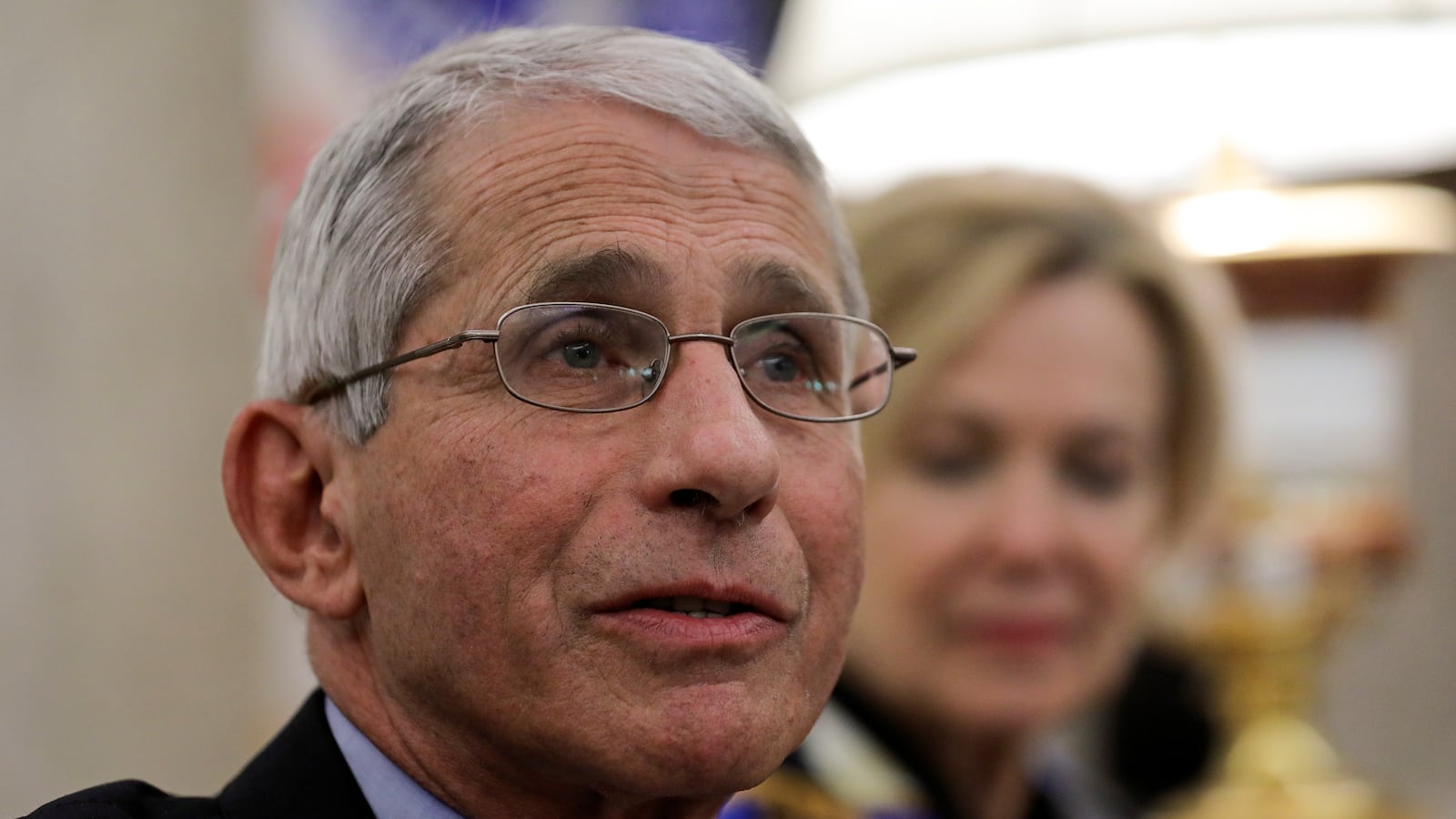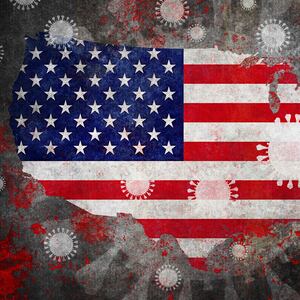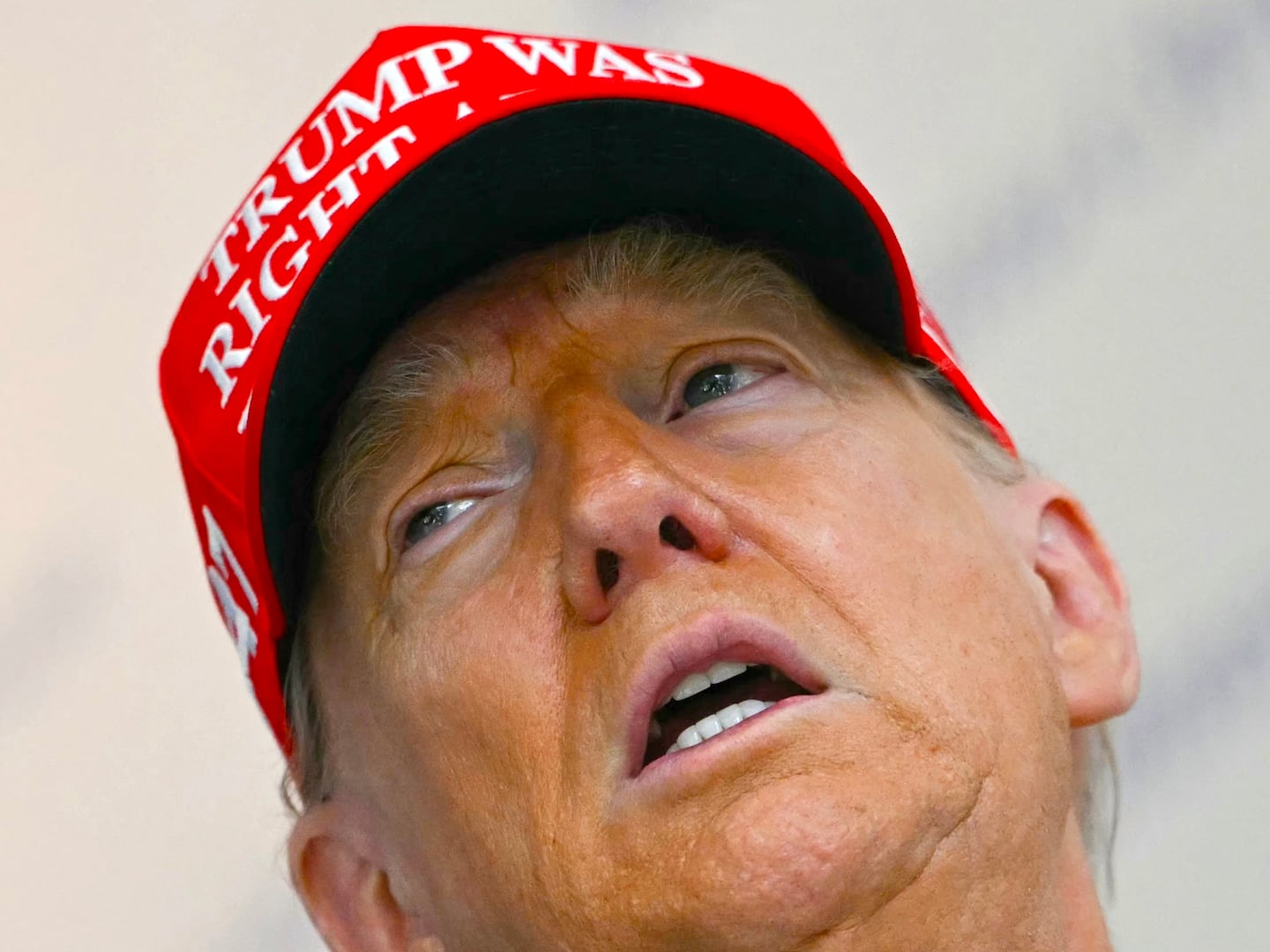In his first appearance before Congress since the worst of the COVID-19 outbreak has unfolded, Dr. Anthony Fauci, the government’s foremost expert on infectious disease, warned that if state and local governments do not follow step-by-step guidelines for reopening, they risk triggering “an outbreak you might not be able to control... leading to some suffering and death that could be avoided.”
Responding to members of the Senate Health, Education, Labor, and Pensions Committee on Tuesday morning, Fauci stressed that local officials should abide by the system developed by the federal COVID-19 task force and remain vigilant about a virus that is not going to disappear anytime soon. “My concern is that we’ll see little spikes that might turn into outbreaks,” he said.
At another point, Fauci referenced the notion that the virus could “disappear”—something President Donald Trump himself has mentioned as recently as last week—and said “that’s just not going to happen, because it’s such a highly transmissible virus.”
Fauci’s appearance was the first chance in two months for lawmakers to hear directly from him and other key officials leading the coronavirus response—and the first chance for GOP lawmakers critical of the measures they’ve recommended to pounce on them.
One of them, Sen. Rand Paul (R-KY), told Fauci that he shouldn’t be the “end-all” and key decision-maker in the virus response, while urging “humility” on the part of doctors regarding what they don’t know about the virus.
Calmly, Fauci fired back, “I don’t give advice about anything other than public health. We should be humble about what we don’t know and that falls under the fact that we don’t know everything about this virus and we have to be careful, particularly when it comes to children.”
Critics of the administration’s handling of the outbreak, meanwhile, got an opportunity to sound off—with perhaps the strongest words coming from Republican Sen. Mitt Romney of Utah. In his line of questioning, Romney dismissed Monday’s Rose Garden victory lap on testing from Trump and members of the COVID-19 task force. He teed off on Adm. Brett Giroir, the group’s testing point person, in particular, for making what he called misleading comparisons to testing capabilities of other countries. "I find our testing record nothing to celebrate whatsoever,” said Romney.
Romney also directed to Fauci a tricky question—Trump’s insistence that his administration was behind on responding to the virus because of inaction by former President Barack Obama. The doctor said it wasn’t the fault of any president—Obama or Trump.
Those careful responses were indicative of the needle Fauci has threaded for months during media interviews and press briefings: conveying the reality of the deadly virus while avoiding the appearance of undermining the president or wading into politics. Tuesday’s Senate HELP hearing, the first time Fauci and other COVID task force officials have appeared before lawmakers in two months, is the most high-profile arena yet for the doctor’s balancing act.
In that time period, the country has completely transformed in its fight against COVID-19, with state and local officials locking down economies almost entirely to stop the virus’ spread. There are over 1.38 million confirmed cases of COVID-19 and 80,000 dead across the country, and cases are still expected to spike in some parts: In the District of Columbia, for example, the local government just finished converting the city convention center into a field hospital to prepare for the possibility that hospitals will be overwhelmed.
The highly unusual staging for the committee meeting was a perfect reflection of the moment: Conducted half in person and half over video, one of the most highly-anticipated congressional hearings in months was punctuated by views into top health officials’ homes, HELP Chairman Lamar Alexander’s wood-paneled den, and Sen. Bernie Sanders putting in his earbuds, apparently forgetting to hit mute.
Despite the title of the hearing ”getting Americans back to work and school”—all of the witnesses testified via video from home—because several are self-quarantining because of exposure to COVID-19. Alexander, meanwhile, testified from his own self-quarantine at home in Tennessee—he too had been exposed to the virus after an aide in his office contracted the illness. Other lawmakers testified remotely so as not to crowd the committee’s actual hearing room on Capitol Hill.
That left the bizarre visual of a skeleton crew of senators and aides gathering around TV monitors—though spaced far apart—in the Senate HELP Committee’s expansive chamber. Sen. Tim Kaine (D-VA) sat with a red cloth around his face; across the room, a goateed Paul reclined in his chair, mask-less.
The tone from Republicans on the committee was geared toward Trump’s goal of reopening the economy and reversing the damage as soon as possible. The task force officials called to testify can all speak to elements of that reopening: Fauci, the country’s foremost infectious disease expert, has been the leading voice setting expectations of when reopening might reasonably begin. Another witness, CDC director Robert Redfield, is closely tracking the virus’ spread and is offering in-depth guidelines for Americans to navigate the virus’ risks in day to day life.
Admiral Brett Giroir, a longtime public health official, is the task force’s testing coordinator—a critical position, given that both Democrats and Republicans emphasize that comprehensive testing is the only way for the U.S. to safely reopen. And Stephen Hahn, the commissioner of the Food and Drug Administration, leads the agency responsible for vetting any of the anti-viral remedies that could help restore confidence in re-opening.
Asked by Alexander what the outlook was for students and faculty around the country hoping for a fall return, Fauci stressed on Tuesday morning that the U.S. is moving quickly on remedies for COVID-19 but likely not fast enough to meet the high benchmarks that would be required for a safe resumption of normal schooling around the country.
“Even at the top speed we’re going,” said Fauci, “we don’t see a vaccine playing in the ability of individuals to get back to school this term.”









